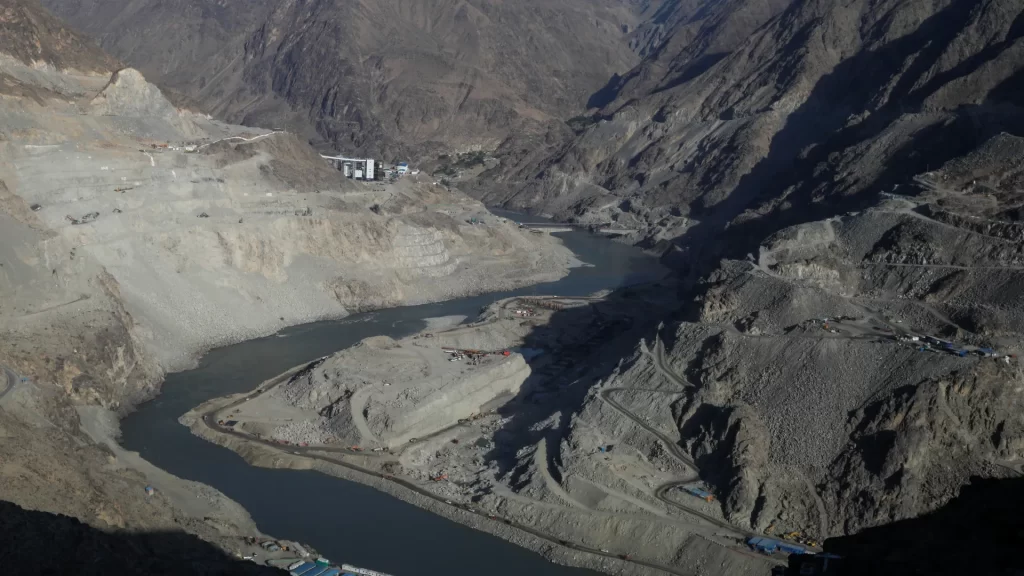Pakistan has reportedly sent a letter to India, requesting a reconsideration of the decision to suspend the Indus Waters Treaty. According to reports, Pakistan’s Ministry of Water Resources has appealed to New Delhi to resume the flow of river waters into Pakistani territory as outlined in the treaty.
The Indus Waters Treaty is a pivotal water-sharing accord that has endured for more than six decades. The plea comes after India halted the 1960 agreement in the wake of yet another Pakistan-backed terrorist attack, this time in Jammu and Kashmir’s Pahalgam on April 22, which left 26 civilians dead, mostly tourists.
India, invoking its national security prerogative, has placed the treaty in abeyance until Islamabad “credibly and irrevocably” ends its support for terrorism.
The Cabinet Committee on Security (CCS), the apex decision-making body on strategic affairs, endorsed the move, marking the first time New Delhi has paused the World Bank-brokered agreement.
In a letter sent to the Ministry of External Affairs, the Pakistani Ministry warned that suspending the treaty would trigger a crisis within the country.
Prime Minister Narendra Modi, in his first address since Operation Sindoor, underlined the government’s uncompromising position.
“Water and blood cannot flow together,” he declared. “Terror and talks cannot happen at the same time. Terror and trade cannot happen simultaneously.”
However, Indian officials have dismissed these concerns, pointing to Pakistan’s longstanding use of terrorism as a state policy.
The treaty allocates three western rivers, Indus, Jhelum, and Chenab, to Pakistan, while the eastern rivers – Sutlej, Beas, and Ravi, remain with India.
Also read: FIR After HC Order on Qureshi Remark
India Announces Three-Tier Strategy to Stop Indus Water Flow to Pakistan
India has now announced a three-tier strategy — short-term, mid-term, and long-term to prevent any flow of Indus waters into Pakistan.
Union Jal Shakti Minister CR Patil said that the government is taking steps to ensure that it utilises every single drop of water before it leaves Indian territory.
Foreign Ministry Spokesperson Randhir Jaiswal reinforced the government’s stance, saying, “We founded the Indus Waters Treaty on goodwill and friendship.” Pakistan has trampled on these values by supporting cross-border terrorism for decades.”
The strong response follows Operation Sindoor, a swift military campaign launched after the Pahalgam attack, which resulted in a brief ceasefire agreement. But New Delhi has made it clear: it will now limit dialogue with Islamabad to one agenda — ending terrorism and ensuring the return of Pakistan-Occupied Kashmir.
As per the 1960 treaty, the agreement allocated around 30 percent of the total water carried by the Indus River System in India to India, while it gave the remaining 70 percent to Pakistan.
With the Indus Waters Treaty suspended, the Narendra Modi government is expected to take major steps toward completing the stalled hydroelectric projects.
A key meeting is likely to be held this week with Home Minister Amit Shah, along with Water Resources Minister Patil, Power Minister Manohar Lal Khattar, Agriculture Minister Shivraj Singh Chouhan, and senior officials from all related Ministries. Since the suspension of the Indus Waters Treaty, two meetings have already taken place between Amit Shah, Patil, and top officials of the Ministry.
Also read: What nuclear watchdog IAEA said on reports of ‘radiation leak’ at Pakistan facility











More Stories
कमल हासन: 19 फिल्मफेयर, 4 नेशनल, पद्मश्री और पद्मभूषण अवॉर्ड भी नहीं रोक पाए विरोध की आंधी, अब क्यों जल रहे हैं इस सुपरस्टार के पुतले?
गोवा में टैक्सी संकट: चालकों का विरोध तेज, सरकार ने सरकारी ऐप से जुड़ने की अपील की
Prey Decline Fuels Tiger-Human Conflict in East India